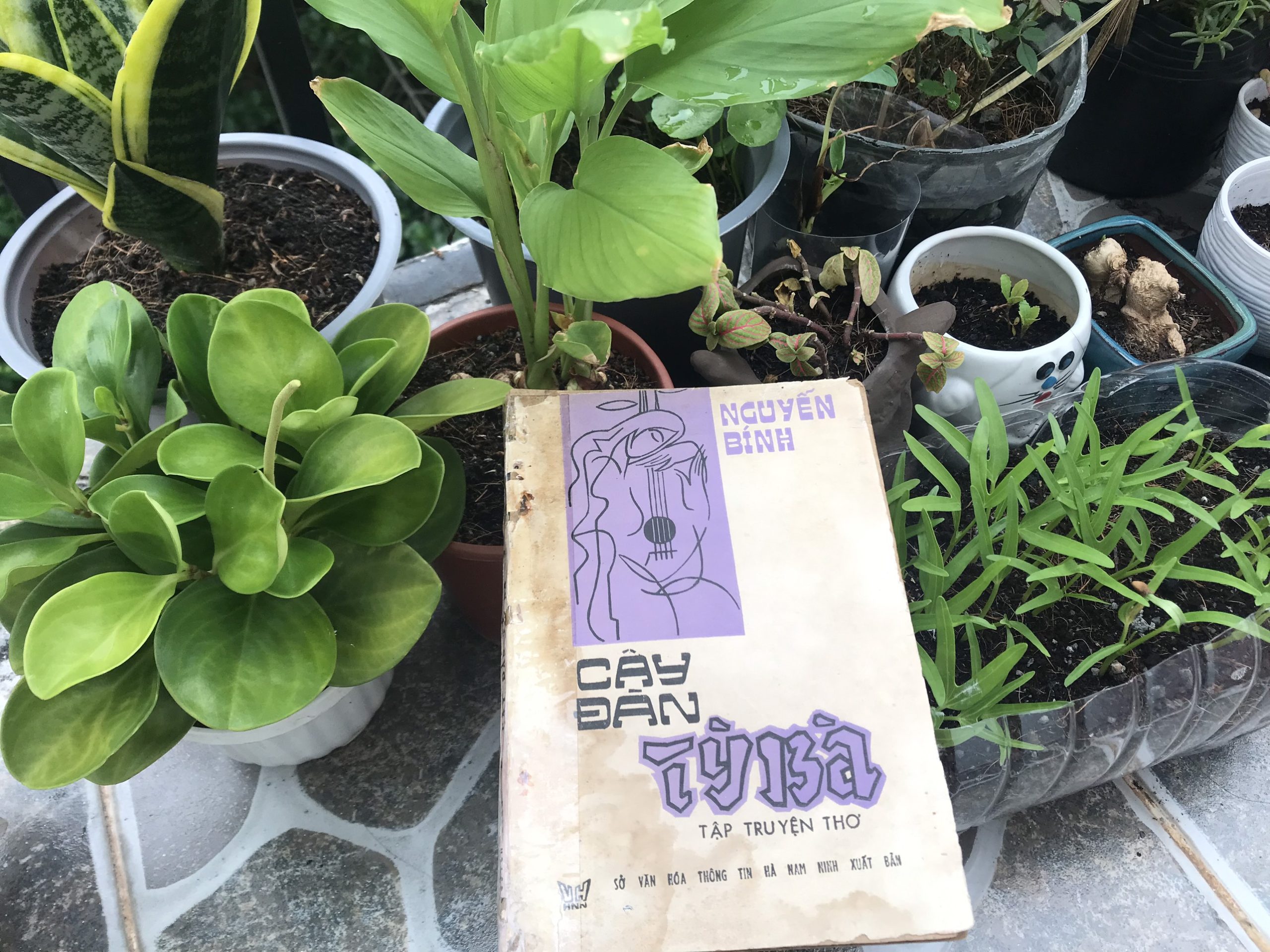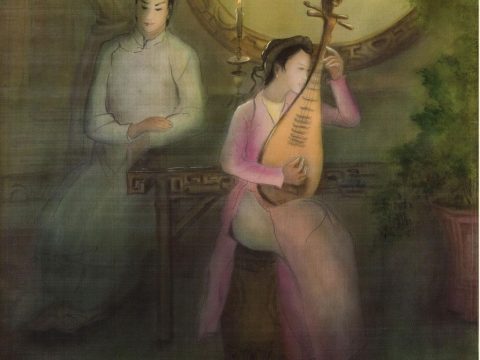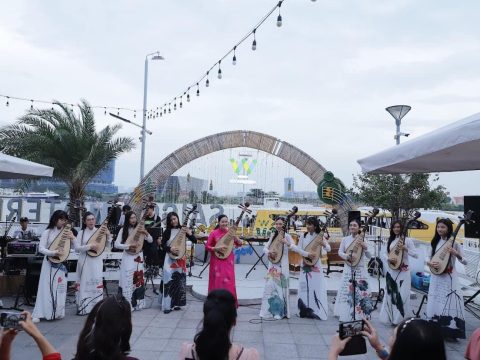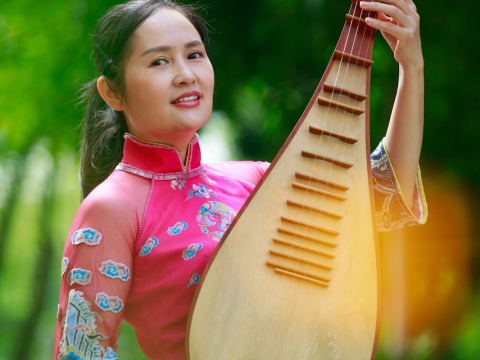TY BA IN LITERATURE: “TY BA TRUYEN” – NGUYEN BINH.
The Ty Ba appears many times in Vietnamese literature and poetry, however, Nguyen Binh’s “Ty Ba Truyen” (The Tale of Ty Ba) takes the name of this instrument as the name of the work. “Ty Ba Truyen” belongs to the six-eight verse form, which is pure Vietnamese poetry. He learned from Nguyen Du’s poetic style, so when reading “Ty Ba Truyen”, many times we see a glimpse of “Truyen Kieu”.
Nguyen Binh’s poem Tale of Ty Ba was inspired and plotted from “Pipa Ky”, the most famous Chinese opera, which appeared in the mid-14th century (late Nguyen Dynasty, early Ming Dynasty).
Since the Southern Song Dynasty (1127-1279), folk stories of Ty Ba, popularized through peddlers, along with stories of Tam Quoc Chi, Thuy Hu, etc. Hoa, an orphan, good at playing the pipa, named Trieu Ngu Nuong. She married a poor student named Thai Ba Hai (or sometimes called Sai Ung), took care of her husband’s parents and worried about her husband’s education.
When Thai Ba Hai passed the poinsettia exam, he lied that he was orphaned and unmarried, in order to marry the daughter of the Thai monk surnamed Ao. Trieu Ngu Nuong stayed at home to take care of her husband’s parents during a drought year, sometimes she had to eat bran to give rice to her parents. After her husband’s parents passed away, she held the pipa and sang on the way to the capital to find her husband. Thai Ba Hai recognized his emaciated ex-wife in the troubadour class, regretted and resumed her old love, making up for old favors. However, Nguyen Binh did not choose that type of “happy” ending, like in Cao Minh’s play “Pipa Ky”. He let Thai Ba Giai’s boat sink into the sea of black and silver prosperity and he turned Trieu Ngu Nuong’s boat towards the vast, unknown ocean.
The compositional circumstances of The Tale of Ty Ba have many special features. In the early forties of the last century, an oppressive political atmosphere prevailed throughout the country. The battles of World War II had not yet occurred on Vietnamese soil, but the Japanese were present everywhere, encroaching on French sovereignty. The prison is full of political criminals. Society struggles with conflicts between old and new lifestyles and values. The new poetry movement is reaching its operational and artistic peak; People hardly want to pay attention to old poetry, meanwhile, the number of successful hexameter poems can be counted by less than the fingers of two hands. Nguyen Binh was about 25 years old at that time, living the spring in exile with a contemptuous mood and poor circumstances. Yet he was inspired and calm enough to adapt the plot of a opera 500 years ago in China, writing the poem The Tale of Ty Ba, in the nation’s six-eight verse form, and up to 1,550 lines long. What a strange phenomenon.
In terms of form, the length of The Tale of Ty Ba is not much less than many previous famous poetic stories: Chinh Phu’s recitation is 408 verses long; Bow resentful reciting 356 verses; Bich Cau is strange 648 sentences; Quan Am Thi Kinh 788 sentences; Mai Dinh’s dream signed 298 sentences; Fairy tale flower 1,826 sentences; Second degree apricot 2,820 sentences; Luc Van Tien 2,076 sentences; and especially, Tales of Kieu 3,254 sentences.

Readers who want to own the most complete poetic material “Ty Ba Truyen” by Nguyen Binh, please contact us.




